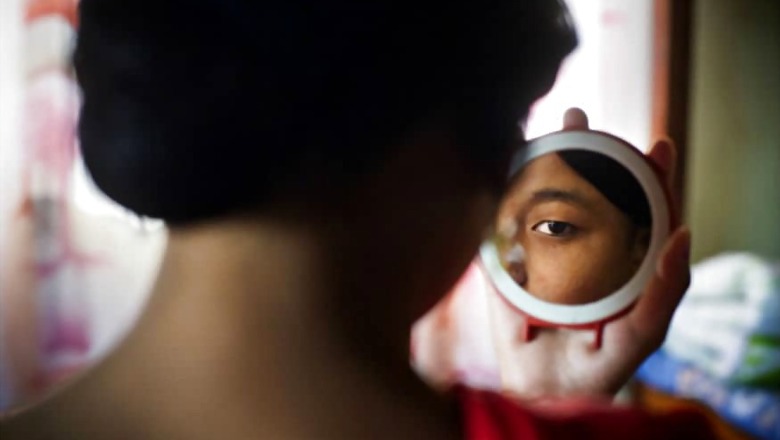
views
New Delhi: A collective of lawyers, sex workers, child rights activists, transgender activists and educators have together spoken out against the new anti-trafficking bill, as it is scheduled to be tabled during the monsoon session of Parliament that begins on Wednesday.
The provisions of the Trafficking of Persons (Prevention, Protection and Rehabilitation) Bill, which was drafted by the Ministry of Women and Child Development and approved by the Cabinet in February, are aimed at increasing prevention, rescue and rehabilitation. It does so by ensuring that all trafficked victims are sent to rehabilitation homes to be run by the government and other voluntary agencies.
It also adds to the bill 11 ‘Aggravated Offences’ that can lead to prosecution under the law.
The ‘victim-centric’ approach has been hailed as a step toward better rehabilitation of victims of trafficking.
But many, including Congress MP Shahsi Tharoor, have spoken out against the devastating effects that the new bill could have on several stakeholders which include marginalised groups such as children, the trans community and consenting sex-workers.
In fact, many have claimed that the bill is essentially nothing but a veiled attempt to further criminalise sex work.
Bill will hurt HIV intervention
The new bill includes a clause that makes transmission or even exposure to HIV in an instance of trafficking among one of the ‘Aggravated Offences’.
Dr Samarjit Jana, who was part of a Supreme Court appointed panel to provide recommendations on prevention and rehabilitation of sex workers who wish to leave the profession, said that the law would have a grave impact on those suffering from HIV.
“Speaking from a public health background, the bill goes against the basic tenets of public health sciences and HIV intervention programmes. So far we have achieved some success with existing laws in terms of HIV intervention which are in keeping with international norms of not criminalising victims of epidemics, HIV included. But by including HIV as part of criminal law, we further increase alienation of those suffering from it,” Jana said.
One of the major hurdles for HIV prevention programmes is stigma and discrimination. Globally, HIV intervention models therefore focus on maintaining confidentiality and privacy of those suffering from it or involved unless they themselves take the onus of revealing the identity. Even the means of HIV transmission – whether it was transmitted through blood transfusion or sexual intercourse – must remain confidential.
Since the 1990s, India has invested heavily in HIV intervention, especially among sex workers and LGBTQI community which are considered ‘high risk groups’. In 2005, efforts to amend the Immoral Traffic (Prevention) Act, 1956 (ITPA) to include the customers under the purview of anti-sex work laws were dismantled after criticism that bringing in the customer — an important stakeholder in HIV intervention programmes — would undo decades of public health work by driving the vulnerable community underground.
According to Dr Jana, who has also been project manager of an STD/HIV intervention programme, sex workers are key players in such programmes. The successful project he led, which was commissioned by the World Health Organisation and implemented by the All India Institute of Hygiene and Public Health (AIIHPH), included training sex-workers as peer educators to disseminate sex education and condoms among the over 5000 sex workers of Kolkata’s Sonagachi.
“If a sex-worker who has HIV is found with a client, will she herself be prosecuted for exposing her client to HIV? Also in such cases, this information becomes evidence admissible in a court of law. It will destroy both privacy and confidentiality of victims – both hallmarks of HIV intervention programs,” Jana said.
Lawyer Tripti Tandon also pointed out that states with the higher prevalence of HIV such as Tamil Nadu and Andhra Pradesh also had the highest number of arrests under the ITPA Act, i.e most number of sex workers were arrested in these states.
Since the definition of trafficking is essentially the same as that of Section 370 and ITPA, both laws that deal with trafficking in India, the new bill is expected to perform similar results.
What about consenting sex workers?
Consenting sex workers will be severely hit by the bill, according to Nisha Gulur, head of the National Network of Sex Workers. Before drafting any bill, all stakeholders must be consulted. But according to Nisha, the sex workers’ community which is one of the biggest stakeholders in anti-trafficking legislation have not been consulted at all before the drafting of this bill.
She added that sex workers were an organised body and were willing to talk to policy makers and the government in order to become part of the dialogue.
“Despite what the Minister for Women says, the bill directly and indirectly criminalises consenting sex workers by including ‘soliciting’ via message or electronic media an aggravated offence. It is clearly an attack on the way sex workers communicate in their profession.” Nisha, who is also a transgender activist said.
Activists have argued against the moralistic nature of the ‘raid-rescue-rehabilitate’ model that the bill endorses. Sex work is not legal in India and while those in the government have accused activists of opposing the bill as a backdoor for legalising sex work, Arti Pai said that the fear was completely unfounded.
“In fact, the bill will give a backdoor to those fighting against freedom of expression and speech by legalising enforced rehabilitation and repatriation of alleged victims. The paternalistic view of rescuing victims of trafficking, including adult sex workers who may or may not have been trafficked, is just a veiled way to curtail the freedom of those involved in sex trade.” Pai said.
According to a petition against the bill which has garnered the support of over 4,000 sex workers from the country, legal constructions of sexual services as exploitation contribute to a climate of stigma and scorn towards persons in sex work and the work itself, thus endorsing state violence and discrimination.
Sex workers such as Kusum argued that the community had been making concerted efforts to contribute to India’s health interventions and other campaigns. Yet the bill tried to take away their right to profession by continuing to stigmatise sex work.
Though the bill never explicitly mentions sex workers, Kusum, the President of the AINSW (All India Network of Sex Workers) asserted that the bill did not differentiate sex work from trafficking.
“If today I, a sex worker, am walking with my daughter or friend. Will I be arrested for trafficking?” Kusum wondered.
Criminalising transgender?
The bill makes giving chemicals or hormones to another for their accelerated sexual maturity an “aggravated offence”, a clause that leaves the trans-community in a lurch. What about those such as Nisha seeking hormone therapy?
“I was born a man and wanted to become a woman. I left my hometown to find others from my community and could help me change. My trans sisters helped me procure hormone therapy so that I could finally achieve my identity. What is wrong with that?”
The ambiguous terms of the bill do not spell out such exceptions. If enacted, it stands to make Nisha’s helpers party to trafficking.
Another point raised by transgender activists was the provision of forced relocation of victim to their hometown. While the relocation does not take into account the victim’s wishes or consent, it further stands to endanger the victim by sending them back to a place that they may willfully have fled.
“I ran from home because of gender based violence. I joined the sex trade because of the lack of acceptance for transpersons in professional fields. I am a dignified person who has a job. But now this bill makes me a 'victim' and sends me back to my hometown after allegedly 'rehabilitating' me from my chosen profession,” Nisha Gulur said.
Trans activist Vikram agreed that the bill essentially criminalises the trans identity by making bringing hormonoes under the ambit of criminality.
Prevention of labour trafficking an ‘eyewash’
While the prevention of bonded and enforced labour is one of the major pegs on which the amendments were made, experts claimed that the bill was anything but pro-labour.
Many such as Kiran Kamal Prasad who have worked with bonded labourers said that the bill did nothing to improve upon the already existing anti-labour exploitation laws.
“The bill mentions forced labour and bonded labour only twice. Once as among the list of the eleven aggravated offences and then towards the end. It’s an eyewash to say the bill is aimed at preventing bonded labour,” Kiran said.
He also added that the 'raid and rescue' style of rescuing trafficked labourers was unusual as previous legislations were focused on releasing the victim from bondage completely, not incarcerating them in ‘homes’ with or without their consent.
Unless three keys of labour rights – recruitment, wages and working conditions — are regulated, forced labour and trafficking cannot stop. The bill is completely silent on these aspects.
Not even helping women and children
The new bill also includes child victims of trafficking. Child rights activists have raised concerns about the proposed ‘rehabilitation’ of children by institutionalising them, a practice which has often faced international censure. Recently, images of children separated from families and put in detention homes in the US under President Donald Trump’s strict anti-immigration laws received global flak.
“You cannot group a bunch of marginalised groups together and create an umbrella law to protect all of them from trafficking, it doesn’t work like that… there is a lack of clarity in the way this bill looks at trafficking. We have repeatedly told policymakers and the civil society that child rights and adult rights are not the same thing,” Enakshi Ganguli of the HAQ Centre for Child Rights said.
She also pointed out that when minors are involved, the legal framework and implementation becomes much more difficult. Where was a girl who is about to turn 18 to be sent for rehabilitation? Will she be treated as a minor?
Questions have also been raised about who will be responsible for these rehabilitation homes, whether it will be the Child Welfare Committee or will it be a new body.
“The more ambiguous the terms of a law, the harder it becomes to implement as it leaves more loopholes for the exploitation of vulnerable groups,” said Tripti Tandon, who is Deputy Director at Lawyers Collective.
The bill also prevents women who have been rescued by the agency from decide for themselves. As Dr Jana pointed out, it takes the victim out of incarceration, only to have others continue to dictate her decisions. It also hurts women who migrate to the different places in search of work, elope with their lovers or are fleeing violence or mistreatment at home by criminalising those in the adult sex industry.
Moreover, experts, including Dr Prabha Kotiswaran, said that putting women and children in ‘rehabilitation homes’ without their consent would border on human rights violation.
Do we need any more laws?
India already has at least ten laws that together are used to prosecute trafficking crimes. This bill does not add much in terms of compensation for the victims and real rehabilitation (studies have shown that most women who are sent to rehabilitation homes from sex work return to the profession once left to their own).
It does not address the reasons for increased migration that leads to undocumented work in unorganised sectors such as labour and sex trade. As experts pointed out, the new law does not fill any of the existing lacunae in trafficking laws but only adds to legislative clutter.
Activists and experts have called for the bill to be passed on to a standing committee for further consultation, this time including all stakeholders, before being made an Act.


















Comments
0 comment